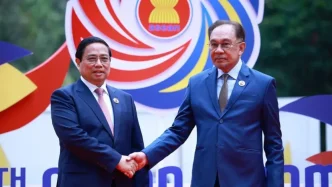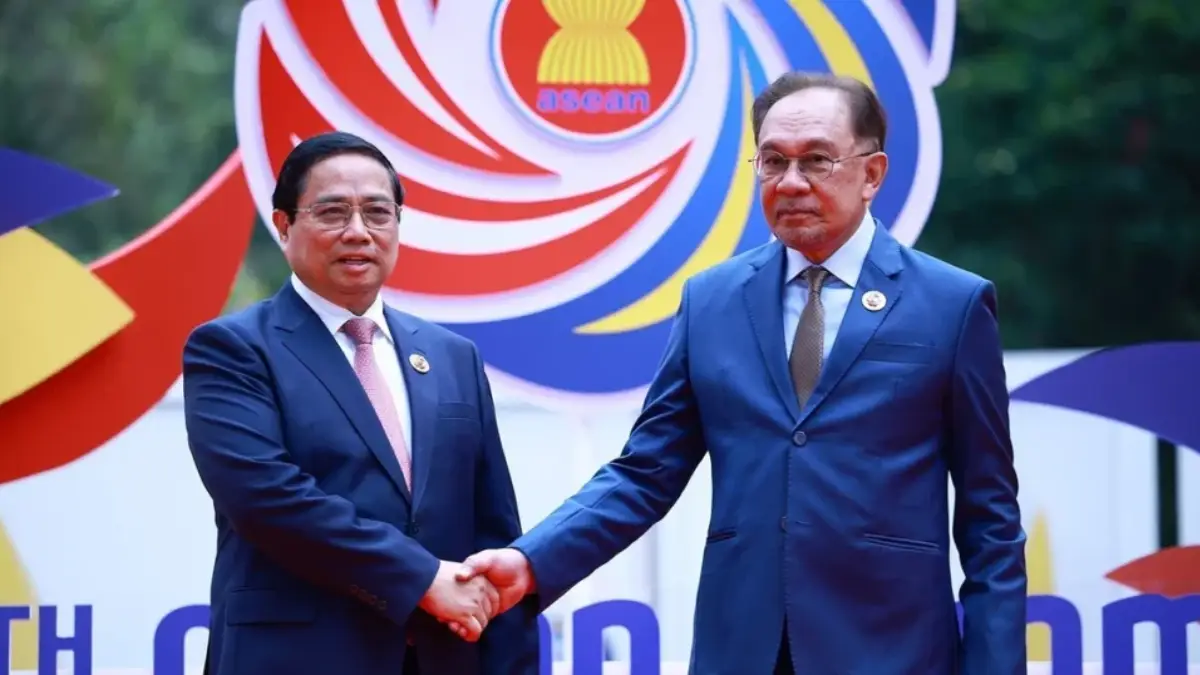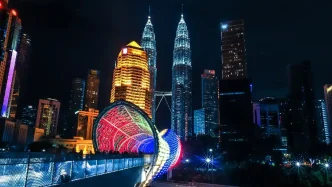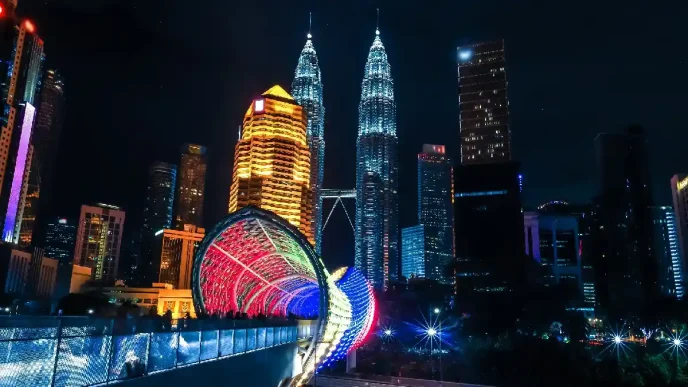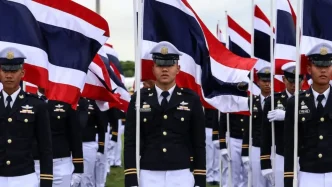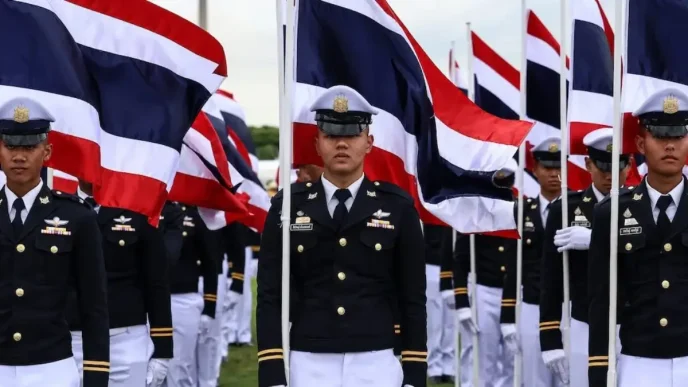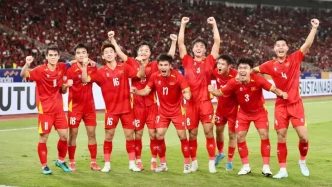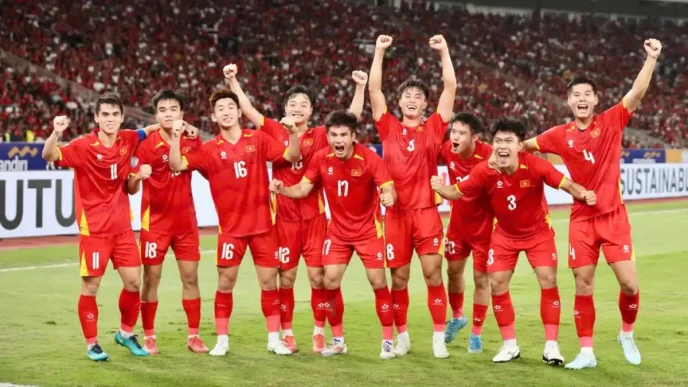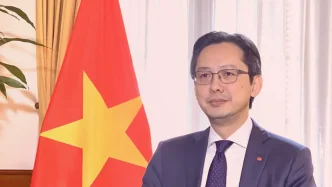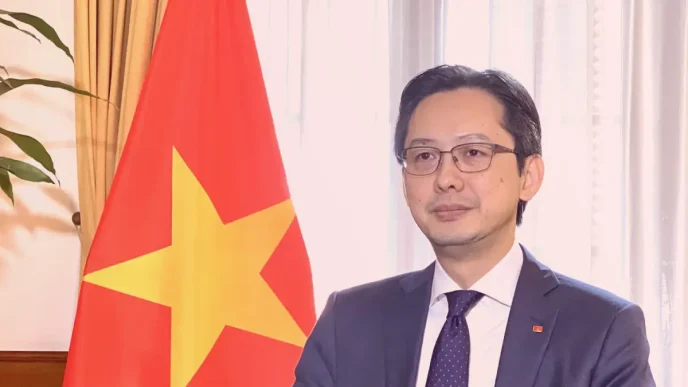In a region often tested by geopolitical tensions and economic disparities, Vietnam is positioning itself as a steadfast supporter of ASEAN’s unity and collective efforts. Prime Minister Pham Minh Chinh recently reaffirmed Vietnam’s commitment to the Association of Southeast Asian Nations (ASEAN), emphasizing the importance of solidarity in addressing shared challenges. As the bloc navigates complex issues ranging from territorial disputes to economic integration, Hanoi’s proactive stance signals a renewed push for regional cooperation.
A Commitment to Collective Progress
Vietnam’s leadership under Prime Minister Chinh has consistently underscored the nation’s dedication to ASEAN’s foundational principles of consensus and mutual benefit. Speaking at a recent regional summit, Chinh highlighted the need for member states to work together on pressing issues such as climate change, economic recovery post-pandemic, and security concerns in the South China Sea. This aligns with Vietnam’s broader foreign policy of fostering multilateral partnerships while maintaining its sovereignty and regional influence.
The emphasis on solidarity comes at a critical juncture for ASEAN, which celebrated its 58th anniversary this year. With a combined population of over 650 million and a GDP surpassing US$3 trillion, the bloc remains a significant player in global economics and politics. Yet, internal divisions—often exacerbated by external powers vying for influence—have occasionally hampered its ability to present a unified front. Vietnam, having chaired ASEAN in 2020 during a particularly turbulent period marked by the COVID-19 outbreak, has experience in steering the organization through crises, and Chinh’s administration appears determined to build on that legacy.
Navigating Geopolitical Tensions
One of ASEAN’s most persistent challenges is managing disputes in the South China Sea, a vital maritime corridor through which trillions of dollars in trade flow annually. Vietnam, as a claimant state, has often found itself at odds with larger powers over territorial claims. However, Hanoi has advocated for a diplomatic approach within ASEAN frameworks, pushing for adherence to international law, including the United Nations Convention on the Law of the Sea (UNCLOS). Chinh’s recent statements reflect this strategy, urging member states to prioritize dialogue over confrontation.
Beyond maritime issues, Vietnam is also keen to strengthen ASEAN’s role in mitigating the impact of global economic uncertainties. The region has faced supply chain disruptions, inflationary pressures, and uneven recovery from the pandemic. Hanoi’s support for initiatives like the ASEAN Economic Community (AEC), which aims to create a single market and production base, demonstrates its commitment to fostering economic resilience. By championing policies that enhance intra-regional trade and investment, Vietnam hopes to help insulate ASEAN economies from external shocks.
Climate and Sustainability on the Agenda
Environmental concerns are another area where Vietnam seeks to lead by example within ASEAN. The Mekong Delta, a critical agricultural hub for the country, faces existential threats from rising sea levels and saltwater intrusion, issues that resonate across the region. Chinh has called for ASEAN-wide cooperation on climate adaptation and mitigation, advocating for joint projects on renewable energy and sustainable agriculture. Vietnam’s push for green technology adoption aligns with broader ASEAN goals to transition toward low-carbon economies, though challenges remain in balancing economic growth with environmental protection.
Moreover, Hanoi is keen to collaborate on disaster preparedness, given the region’s vulnerability to typhoons, floods, and other natural calamities. By sharing expertise and resources, Vietnam aims to contribute to a more resilient ASEAN, capable of responding swiftly to crises that disproportionately affect its most vulnerable populations.
Strengthening People-to-People Ties
Beyond high-level diplomacy, Vietnam recognizes the importance of grassroots engagement in building ASEAN’s cohesion. Cultural exchanges, educational programs, and tourism initiatives have been prioritized as means to foster mutual understanding among the bloc’s diverse populations. Vietnam, with its rich history and vibrant traditions, has much to offer in this regard. From the bustling streets of Ho Chi Minh City to the ancient charm of Hanoi, the country serves as a cultural bridge, inviting fellow ASEAN citizens to explore shared heritage and aspirations.
Chinh’s administration has also supported youth and educational initiatives within ASEAN, viewing the younger generation as key to the bloc’s future. Programs that facilitate student exchanges and collaborative research are seen as investments in long-term regional stability. By nurturing a sense of shared identity, Vietnam hopes to lay the groundwork for an ASEAN that is not only politically and economically integrated but also culturally cohesive.
Challenges to Unity
Despite Vietnam’s efforts, ASEAN’s path to deeper integration is fraught with obstacles. Divergent national interests among member states often complicate consensus-building, particularly on sensitive issues like human rights and democratic governance. For instance, the political situation in Myanmar following the 2021 military coup has tested ASEAN’s principle of non-interference, with some members advocating for stronger action while others remain cautious. Vietnam, while maintaining diplomatic relations with all parties, has called for dialogue and adherence to ASEAN’s Five-Point Consensus, a framework aimed at restoring peace in Myanmar.
Additionally, external influences pose a significant challenge to ASEAN’s autonomy. The strategic rivalry between major powers like the United States and China often places the bloc in a delicate position, with member states navigating competing pressures. Vietnam, with its balanced approach to foreign relations, has sought to shield ASEAN from becoming a battleground for proxy conflicts. By advocating for an ASEAN-centered regional architecture, Hanoi aims to ensure that the bloc remains the primary driver of its destiny.
Economic Integration as a Unifying Force
Economic cooperation remains a cornerstone of ASEAN’s mission, and Vietnam has been a vocal proponent of deepening trade ties. The country has benefited significantly from regional free trade agreements, including the Comprehensive and Progressive Agreement for Trans-Pacific Partnership (CPTPP) and the Regional Comprehensive Economic Partnership (RCEP), both of which include ASEAN members. These agreements have bolstered Vietnam’s export-driven economy, particularly in sectors like textiles, electronics, and agriculture.
However, disparities in economic development among ASEAN countries pose a hurdle to equitable growth. While nations like Singapore boast advanced economies, others, such as Laos and Cambodia, grapple with infrastructure deficits and poverty. Vietnam, as a middle-income country, is uniquely positioned to bridge this gap, sharing its experiences in industrialization and rural development. Chinh’s government has proposed capacity-building programs to support less-developed members, reinforcing the idea that ASEAN’s strength lies in its collective progress.
Looking Ahead
As ASEAN faces an increasingly complex global landscape, Vietnam’s role as a stabilizing force within the bloc is more crucial than ever. Prime Minister Pham Minh Chinh’s commitment to solidarity reflects a broader vision of a region that thrives through cooperation rather than division. Yet, the road ahead is not without its challenges. Balancing national interests with regional priorities, addressing environmental threats, and navigating geopolitical currents will test ASEAN’s resilience in the years to come.
For now, Vietnam’s steadfast support offers a glimmer of hope. As reforms and initiatives unfold, the question remains: can ASEAN harness this momentum to emerge as a truly united and influential bloc on the world stage?

